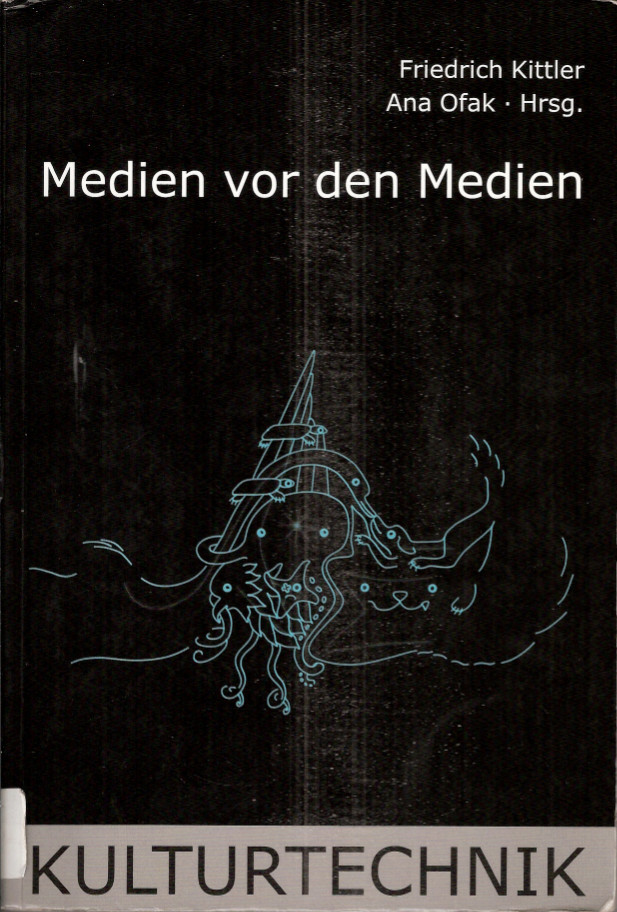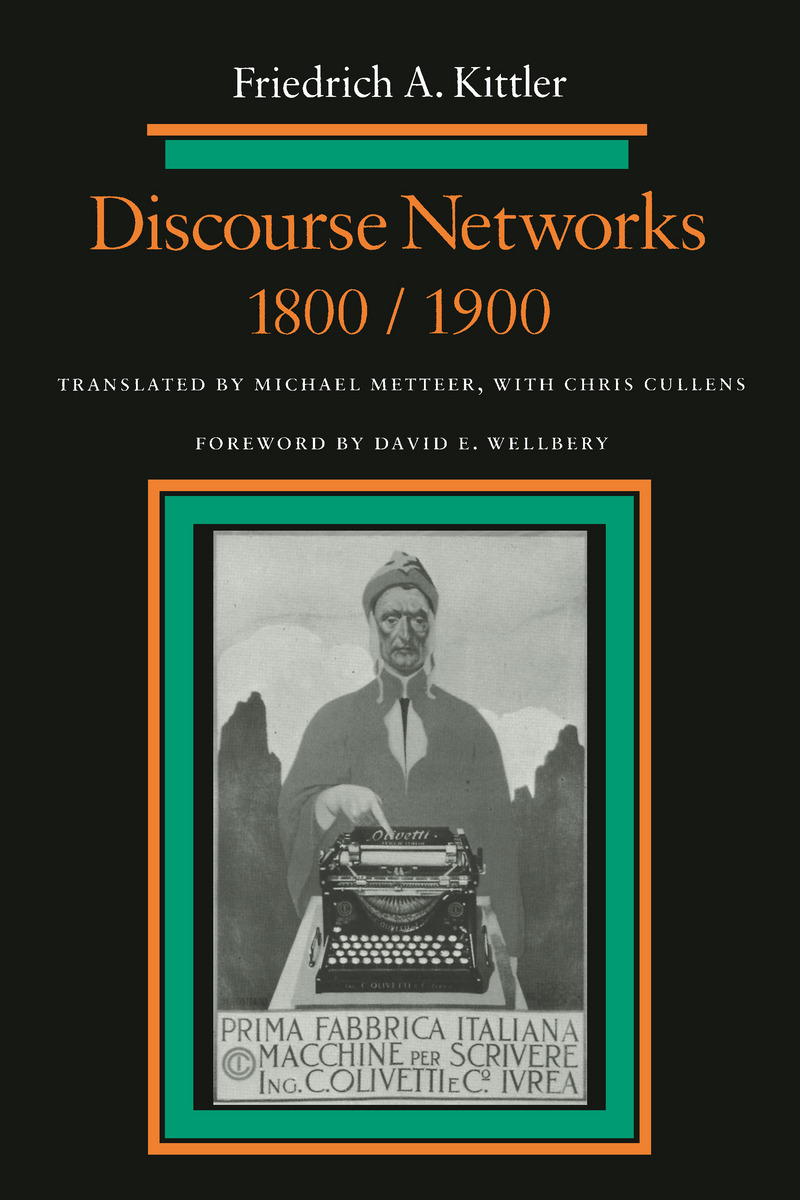Friedrich Kittler, Ana Ofak (eds.): Medien vor den Medien (2007) [German]
Filed under book | Tags: · architecture, cultural techniques, image, literature, media, media theory, mediality, music, music history, philosophy, sound, time

“Das Dazwischen (to metaxy) macht das Sehen und Hören, die Erkenntnis und die Liebe erst möglich – das überliefern uns Texte der Antike. Die Medien prägen so unser Wissen und verstören unsere Sinne seit jeher. In der deutschen Medienwissenschaft ist es fast zur Selbstverständlichkeit geworden, nur heutige oder doch neuzeitliche Medien zu erforschen. Nun geht aber schon der Begriff “Medium” auf die griechische Antike zurück. Eben diesem Sachverhalt sucht der Band Medien vor den Medien gerecht zu werden. Vom Feuertelegraphen zur Ontologie, vom Marienglas zur sakralen Lichtarchitektur und immer wieder vom Ton zum Bild. Da die Medien der Antike zunächst zur Sprache kommen, wird es möglich, Brücken zu anderen Wissenschaftskulturen und in jene Neuzeit zu schlagen, die unseren kurrenten Begriff physikalischer und technischer Medien prägt. Das Buch richtet sich an Philosophen, Kunst-, Kultur- und Medienwissenschaftler.”
Publisher Fink, Munich, 2007
Kulturtechnik series
ISBN 3770542843, 9783770542840
282 pages
via adorno77
Cultural techniques at Monoskop wiki
PDF (53 MB, no OCR, updated on 2020-4-20)
Comment (0)Friedrich A. Kittler: Discourse Networks 1800/1900 (1985–) [German, English]
Filed under book | Tags: · communication, discourse, history of literature, language, literary theory, literature, media, media archeology, media technology, media theory, philosophy, psychoanalysis, psychophysics, technology, writing

“This is a highly original book about the connections between historical moment, social structure, technology, communication systems, and what is said and thought using these systems–notably literature. Friedrich Kittler focuses on the differences between ‘discourse networks’ in 1800 and in 1900, in the process developing a new analysis of the shift from romanticism to modernism. The artful structure of the book begins with Goethe’s Faust and ends with Valéry’s Faust. In the 1800 section, the author discusses how language was learned, the emergence of the modern university, the associated beginning of the interpretation of contemporary literature, and the canonization of literature. Among the writers and works Kittler analyzes in addition to Goethe’s Faust are Schlegel, Hegel, E.T.A. Hoffman’s The Golden Pot, and Goethe’s Tasso. The 1900 section argues that the new discourse network in which literature is situated in the modern period is characterized by new technological media–film, the photograph, and the typewritten page–and the crisis that these caused for literary production. Along the way, the author discusses the work of Nietzsche, Gertrude Stein, Mallarmé, Bram Stroker, the Surrealists, Rilke, Kafka, and Freud, among others.”
Aufschreibesysteme 1800/1900
First published in 1985
Third, completely revised edition
Publisher Wilhelm Fink Verlag, Munich, 1995
ISBN 3770528816, 9783770528813
524 pages
Discourse Networks, 1800/1900
Translated by Michael Metteer, with Chris Cullens
Foreword by David E. Wellbery
Publisher Stanford University Press, 1990
ISBN 9780804720991
496 pages
Reviews: Franz Futterknecht and David Wellbery (Poetics Today, 1987, EN), Robert C. Holub (German Quarterly, 1987, EN), Thomas Sebastian (MLN, 1990, EN).
Wikipedia (DE)
Publisher (DE)
Publisher (EN)
Aufschreibesysteme 1800/1900 (German, 3rd ed., 1985/1995, removed on 2024-2-6 upon request from Brill)
Discourse Networks, 1800/1900 (English, 1990, updated to the full book on 2014-1-30 via poshumano, updated to single-page OCR’d version on 2014-1-31 via Marcell Mars)
Online version of Index of persons (at Monoskop wiki)
Comments (3)Jeff Berner (ed.): Astronauts of Inner-Space: An International Collection of Avant-Garde Activity (1966)
Filed under book | Tags: · art, avant-garde, computing, concrete poetry, image, language, literature, media, poetry, situationists, technology, text, theatre

17 Manifestoes, Articles, Letters, 28 Poems & 1 Filmscript.
With manifestoes by Raoul Hausmann, John Arden, Jorgen Nash, Decio Pignatari, Maurice Girodias, Bruno Munari, Allen Ginsberg, Franz Mon, Marshall McLuhan, Max Bense, Diter Rot, Otto Piene, W. S. Burroughs, Dom Sylvester Houedard, Konrad Bayer, Margaret Masterman, R. Watts
Publisher Stolen Paper Review Editions, San Francisco, and The Times Publishing Co, London, 1966
66 pages
scanned by Lori Emerson

